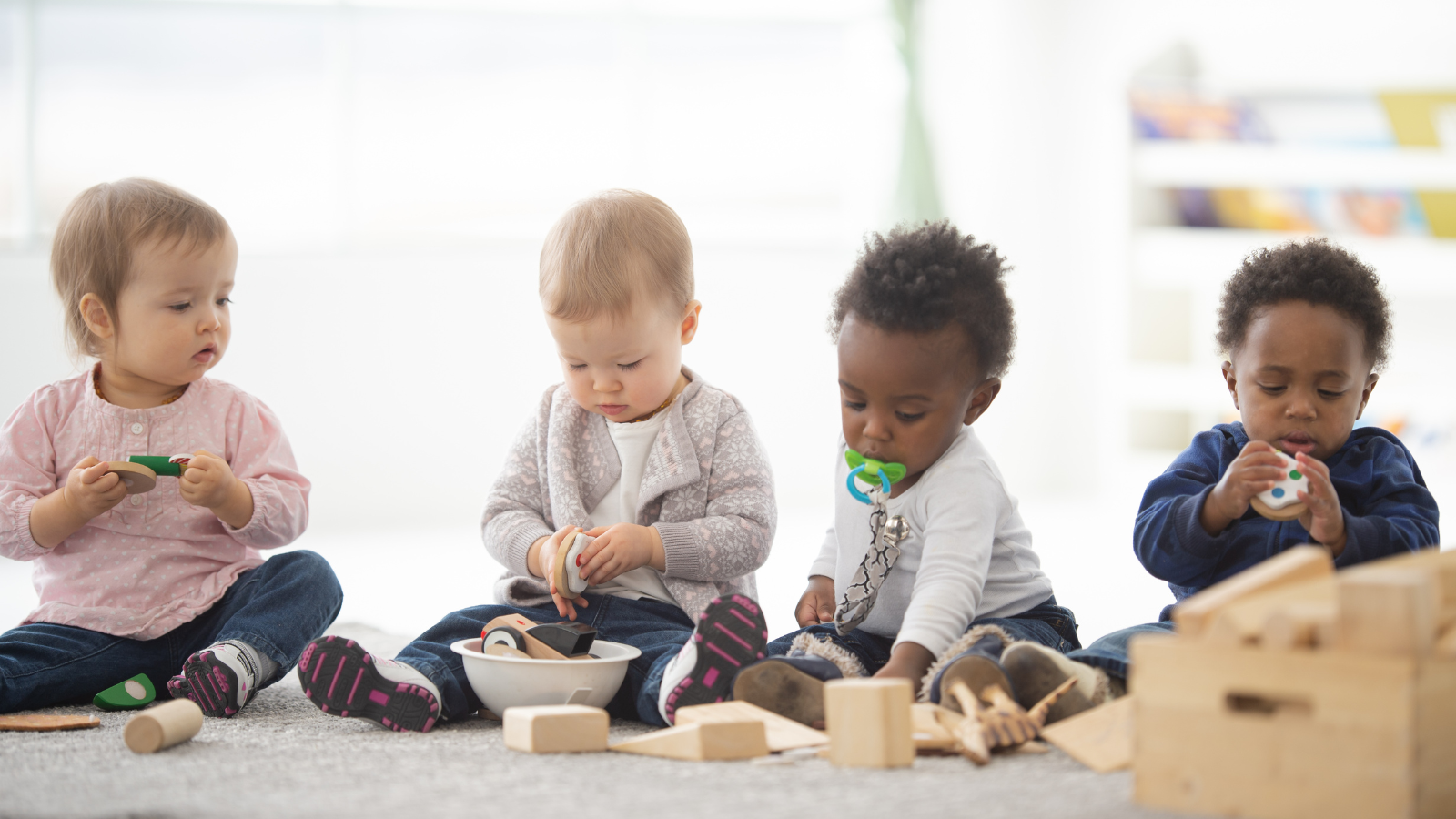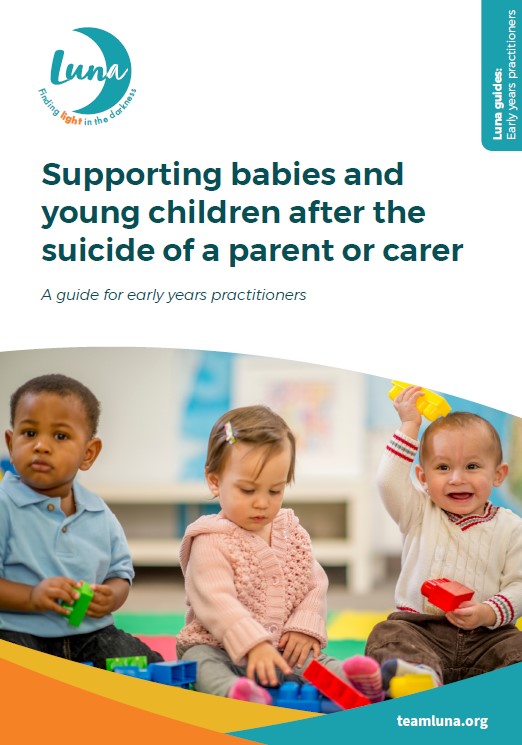
New suicide bereavement training for early years practitioners
As Children’s Grief Awareness Week begins today, we’re excited to be delivering our first series of training sessions for early years practitioners. Commissioned by the Greater Manchester Integrated Care Board, these three-hour sessions are for anyone who works with children aged five and under in the area.

‘These new suicide bereavement sessions for early years practitioners are an incredibly important addition to Luna’s training portfolio. It’s vital not to overlook suicide bereavement during the early years, as we know these children face increased risks to their own mental health because of their loss. Those working with young children and babies want to provide the best possible care, and we’re delighted to be launching this new training during Children’s Grief Awareness Week 2023,’ Anna Wardley, CEO of Luna Foundation, said.
Research published in Lancet Psychiatry in May 2022 revealed that children who are aged between two and five when they lose a parent to suicide are the more likely to take their own life in the future than children who experience that type of loss at a different time.
Suicide remains the leading cause of death in women during the first year of motherhood and the main cause of death in men and women under 35, many of whom are parents.
Young children’s grief and trauma responses may be different to adults and older children. They may go unrecognised and therefore unsupported, leaving children at a very vulnerable age to cope with overwhelming emotions alone. The surviving parent or caregiver (if they have one) is likely to be dealing with their own shock, grief and trauma. They may struggle to give the child the attention and understanding they need.
Early years practitioners have a vital role to play in mitigating some of these risks and supporting and advocating for babies, children and their families. Our training can help them feel confident and prepared to do so. It’s based on extensive research as well as focus groups and interviews with early years practitioners and people with lived experience of parental suicide at a young age. We’re very proud of it and can’t wait to share it more widely.

